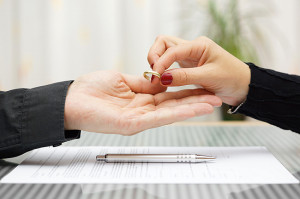Gentlemen may prefer blonds, but Generation Selfies prefer spouses with jobs

By Carlo Maffat | Nevada Watchdog
LAS VEGAS, Nev. — If you’re starting to think you have a better chance of being struck by lightning than getting married, you’re not alone. But not for the reasons you might think.
IT’S NOT HAPPENING! Generation Selfies want partners with jobs.
A recent study by The Pew Research Center found that high unemployment rates and tough economic times makes getting hitched a lot less appealing.
In fact, when asked how important it is to marry someone who’s got a job, 78 percent of women polled agreed it was very important to them, and 41 percent of men did too.
Generation Selfies’ attitudes about marriage are different from earlier generations. Many think it’s way better to be alone than with someone who can’t chip in for rent. They have less spending power than their parents had at the same age. They shy away from debt and aren’t obsessed with home ownership.
According to a study by Bankrate.com, they are less likely to have a credit card than any other age group. They’ve also been the folks hit hardest by the recession, according to data collected by the Bureau of Labor Statistics.
For these reasons, this group is choosing to go it alone. But this trend is now threatening to unhinge one of America’s most valued concepts.
It’s well established that married people have higher net worths, live longer and are happier.
The Census Bureau reported in 2010 the combined value of a married couple between the ages 55 and 64 is about $260,000, where a single man’s net worth is around $70,000. A single woman’s net worth is $39,000.
CNBC News reported that married people live seven to 18 years longer than unmarried people, and the Center for Disease Control states that married people enjoy better physical and mental health.
Another study published by the British newspaper The Telegraph found that being married increases the happiness of the individual, which is said to be 20 times more important than salary or home ownership.
When the hit song “So many women, so little time” came out more than 30 years ago, it may have been truer than it is today. In the 60s, when jobs were plentiful and futures were bright, on average, women married around age 20 and men at 23. Now it’s bumped up to around 27 for women and 29 for men.
Singleness affects minority groups even more. African Americans where 36 percent remain single, followed by Latinos at 26 percent and 16 percent among whites.
Plunging marriage rates will have social, political and economic implications. New economic realities are forcing many to rethink their priorities. Having fewer children and opting out of home ownership is only the beginning.







